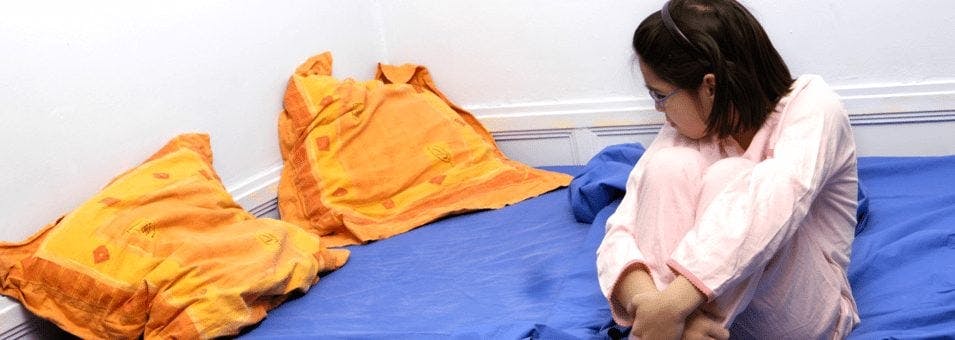
2019-06-27T14:25:54
Your Urologic Health – Signs You Should Not Ignore
- Urology
July 13, 2016 | Urology
Specialties:Urology

Soggy sheets, wet pajamas and an embarrassed child are common occurrences in millions of households. While extremely common in young children under the age of 6, bed-wetting can last well into a child’s teen years. About 13 percent of 6-year-olds experience bed-wetting while about 5 percent of 10-year-olds do as well. By the age of 12, 3 percent of children still wet the bed. The problem is more common in boys than it is in girls.
Bed-wetting is not a sign of laziness. It is not your child’s fault. There are many reasons a child may still be wetting the bed. Fortunately, bed-wetting usually stops on its own as a child ages. If not, a doctor can check for problems, develop a treatment plan and recommend solutions to keep a child dry all night.
Bed-wetting is a complex issue that may be the result of an underlying problem. Medical professionals classify bed-wetting into two types: primary and secondary. Primary bed-wetting occurs when a child has never remained dry at night for a significant length of time. Children with primary bed-wetting wet the bed at least twice a month. Secondary bed-wetting happens when a child wets the bed after having been dry for a long time, usually six months or longer.
Here are seven common reasons for bed-wetting:
1) The child’s bladder is too small to hold urine for an entire night
2) Nerves controlling the bladder mature slowly, making the child unable to recognize a full bladder and are therefore slow to awaken to the sensation of needing to urinate.
3) An imbalance of antidiuretic hormone (ADH) is present, slowing the production of urine at night
4) Stress, such as the stress of changing schools, sleeping away from home, or the arrival of a new sibling
5) Urinary tract infection or constipation
6) Obstructive sleep apnea, a condition where the child’s breathing stops during sleep
7) Diabetes, which causes a person to urinate frequently
Many children who suffer from bed-wetting have at least one parent who wet the bed as a child too. Most children stop wetting the bed on their own at about the same age as their parent did.
Some children have to take special measures to reduce their risk of wetting the bed. A child can refrain from drinking any fluids after dinner, for example, and avoid caffeine throughout the day. A parent may purchase a special pad that senses moisture and sets off an alarm. Every child should go to the bathroom just before going to bed.
If bed-wetting does not go away on its own, and it is causing a problem for the child, a trip to the doctor may help. A physician will check the child for physical problems and provide treatment as necessary. The medical professional can provide hints and tips for staying dry, or teach a child exercises to strengthen the bladder muscles. A doctor can also prescribe medicine that can help reduce the need to urinate at night, but these drugs work best when combined with other treatments.
If your child is over the age of 5 or 6 and bed-wetting is still a problem, learn how you can overcome the problem by speaking with a Revere Health urologist.
WRITTEN BY:
The Live Better Team
This information is not intended to replace the advice of a medical professional. You should always consult your doctor before making decisions about your health.